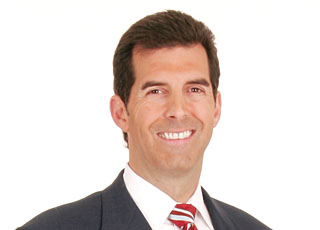
Kindred Healthcare has succeeded in its quest to acquire Gentiva Health Services. The companies announced Thursday morning they would combine to create the fourth-biggest healthcare provider of any type in the United States. The $1.8 billion deal was approved by the boards of both companies, ending Kindred’s five-month hostile takeover bid for the home health provider.
“We’re just over the moon,” Kindred CEO Paul Diaz told McKnight’s. “We have this enormous opportunity to change how we think about caring for people as they are aging, and caring for people with chronic disease.”
Gentiva, one of the nation’s largest providers of home health, hospice and community care services, dramatically complements Kindred’s “six- to seven-year” evolution from being primarily a nursing home and acute-care hospital company to a continuum-wide provider of services. The path to the deal was not smooth and Kindred pursued the acquisition with determination.
The deal is expected to close in the first quarter of 2015, at which time Kindred will become the largest operator of long-term acute care hospitals and inpatient rehabilitation facilities in the country, as well as the largest provider of rehabilitation, home health and hospice services. It also will be the eighth-largest skilled nursing operator, Diaz said. There is further intent to grow all segments incrementally.
“We will build probably more than we will acquire, but we will acquire, too,” he said. “Tuck-in” additions will be made to integrated markets, with assisted living becoming an especially “nice complement” in the future, he explained.
The new entity will employ 109,000 people — and be the 78th largest private employer in the country — with less than 1% of current jobs at risk due to redundant positions, Diaz said.
“The model we’ve had is when people get sick, they go to the hospital and then people in the post-acute care world help them recover,” he said. “We’re just trying to accelerate this as to where this recovery should be directed — it’s at home.”
Kindred’s transition, largely enabled by technology, aims to break down silos to get people in the “most clinically appropriate settings,” while in particular allowing more care where “patients, and particularly baby boomers want to be — home,” Diaz said.
“We’re just trying to develop an ecosystem so we can help get patients to the right place at the right time, at the lowest cost to payers,” he continued. “Look, if we can reduce length of stay and get people home more quickly, that’s our value proposition.”
The strategy “still leaves LOTS of room for assisted living, CCRCs and skilled nursing,” he emphasized.
The company will operate in 47 states and deliver annual revenues of approximately $7.1 billion after the deal is approved by regulators and Gentiva stockholders. The latter will receive $19.50 per Gentiva share, which includes $5 of Kindred common stock.
“The cash and equity structure of the transaction, which represents a 128% premium to Gentiva shares since Kindred’s offer became public, provides Gentiva shareholders with immediate value and the opportunity to participate in the potential growth and value creation of the combined company,” said Gentiva Executive Chairman of the Board Rodney D. Windley in a prepared statement from the companies. The statement added that the companies already have received government clearance under the Hart-Scott-Rodino Antitrust Improvements Act of 1976.



